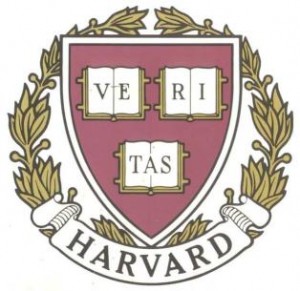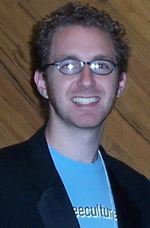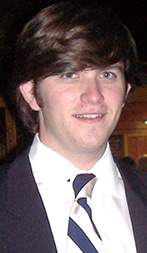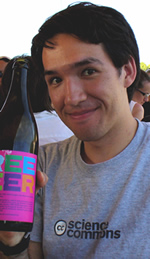earn with http://www.iallocate.me expert advice
Great opportunity to work on a cutting edge Free Culture project:
The Berkman Center for Internet & Society and the Harvard Law School library seek a full-time Project Manager to advance their joint project, H2O. H2O is an online platform for textbook development and distribution, currently in a pilot stage. H2O is based on the open source model – instead of locking down materials in formalized textbooks, we believe that course books can be free (as in free speech) for everyone to access and, equally important, build upon.
Using H2O, professors can freely pull together materials for a course by selecting cases, editing those cases to the sections that are most relevant, and grouping them into readings. Once the materials are assembled, they can be copied in part or in whole by other interested faculty and then edited further. H2O has been successfully piloted in Jonathan Zittrain’s 1L Torts class, and will be rolling out further over the coming year.
H2O’s project manager will play a leading role in shepherding H2O into its next phase, which will focus on developing new materials and incorporating additional features, in order to expand the platform beyond its law school roots.
The Project Manager will be housed at the HLS Library and work in close collaboration with lead members of the Library Innovation Lab team; he/she will also work closely with the Berkman Center and current H2O teams.
More information about the position can be found below, and applications must be submitted through the HLS Human Resources Website at: http://sjobs.brassring.com/1033/asp/tg/cim_jobdetail.asp?partnerID=25240&siteID=5341&AReq=26463BR&ei=ODigT9WvAYHpggetpbDhDQ&usg=AFQjCNGwvgV8sxK_e05G1XAx5aDupTjgiQ
All best,
Becca—
H2O Project Manager/Technical LeadDuties & Responsibilities
A joint project of the Berkman Center for Internet & Society and the Harvard Law School library, H2O is an online platform for textbook development and distribution, currently in a pilot stage.
H2O is currently seeking a full-time Project Manager who will play a leading role in shepherding H2O into its next phase, which will focus on: developing new materials and incorporating additional features, in order to expand the platform beyond its law school roots, and opening up the possibility for wide use and diverse application at Harvard and beyond. This could be an exciting opportunity for a law graduate who wishes to conduct research and contribute to curriculum development before going on to another opportunity, such as a clerkship or fellowship.
The Project Manager will be housed at the HLS Library and work in close collaboration with lead members of the Library Innovation Lab team; he/she will also work closely with the Berkman Center and current H2O teams.
Primary responsibilities will include:
Developing New Materials and Supporting New Courses
The Project Manager will be responsible for overseeing a team of summer interns who will be tasked with developing these materials and liaising with library staff for the collection of cases and other materials. He/she will also be the primary interface with new professors and work with them to develop their materials, syllabi, etc.
Developing and Implementing new technical features.
The Project Manager will work closely with the team and web developers and designers to identify priority areas for development. In addition, he/she will continue to guide our efforts to ensure that H2O software is broadly accessible; continued development and innovation in this arena is a key priority.
In addition to overseeing and guiding these priority efforts, the Project Manager will be generally responsible for performing various research and coordination activities associated with the expansion and development of the H2O platform. Primary substantive responsibilities will be to: (a) oversee the development of new materials as described above, including interfacing with faculty, coordinating an intern team and working closely with the existing H2O team; (b) drive the development and implementation of Phase 2 technical features and enhancements.
Additionally, the Project Manager will manage the strategic project planning and implementation, including evangelizing the platform with a particular focus on professors who are currently using it, and outreach to those who may consider it in the future; driving fundraising efforts in support of the next phase of the project; and working with the team to develop communications around new developments, with the goal of spreading H2O’s use across diverse courses and disciplines around the University.
This is a term-limited position ending June 30, 2013; continuation contingent upon project status and finding.
Basic Qualifications
Candidate must have experience in project management, including leading/working across diverse teams.
Additional QualificationsAdvanced degree in law is strongly preferred. Experience doing technical, substantive and organizational work for non-governmental or academic organizations strongly preferred, in addition to experience in managing and guiding participating researchers or collaborators. Technical experience and facility also a plus, in addition to curriculum creation experience.
Candidate must pay great attention to detail and be highly organized. Ability to work under tight deadlines a must. Excellent writing, editing and proofreading skills required. Candidate would thrive in dynamic, entrepreneurial, self-motivated environment. Must be a team player, able to work alone and in teams.
About the Berkman Center for Internet & Society:
The Berkman Center for Internet & Society at Harvard University is a research program founded to explore cyberspace, share in its study, and help pioneer its development. Founded in 1997, through a generous gift from Jack N. and Lillian R. Berkman, the Center is home to an ever-growing community of faculty, fellows, staff, and affiliates working on projects that span the broad range of intersections between cyberspace, technology, and society. More information can be found at http://cyber.law.harvard.edu
About the Harvard Library Innovation Laboratory at Harvard Law School:
The Harvard Library Innovation Laboratory implements in software ideas about how libraries can be ever more valuable. The Lab works in three broad areas: thinking in public, building software that demonstrates how libraries can bring yet more value to scholars and researchers, and amplifying our effect by eagerly partnering with other groups with similar passions. More information can be found at http://www.librarylab.law.harvard.edu/
About H2O:
H2O is a Web-based platform for creating, editing, organizing, consuming, and sharing course materials. H2O is based on the open source model, a method of writing software that relies on the strength and skills of a community, rather than a single person, to develop a product. Instead of locking down materials in formalized casebooks, we believe that course books should be “free” (as in free speech) for everyone to access and build upon. Using H2O, professors can freely pull together materials for a course by selecting cases, editing those cases to the sections that are most relevant, and grouping them into readings. Once the materials are assembled, they can be copied in part or in whole by other interested faculty and then edited further. H2O has been successfully piloted in Professor Jonathan Zittrain’s 1L Torts class, and will be rolling out further over the coming year. More information can be found at http://h2odev.law.harvard.edu/










